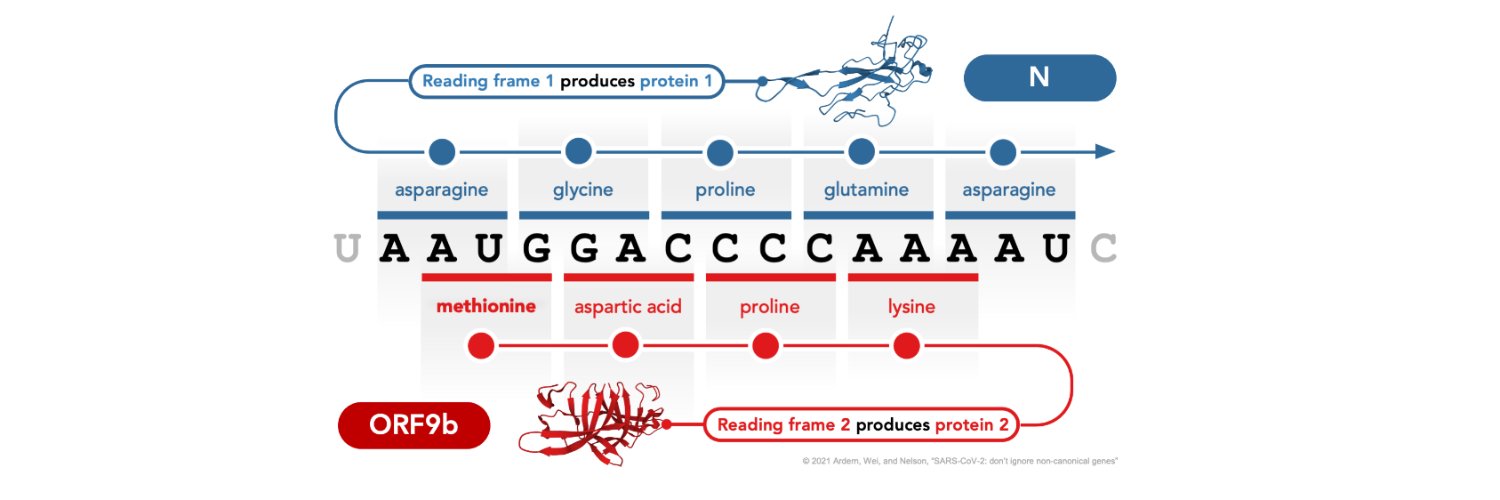
Zachary Ardern 🧬
@zachary_ardern
🇳🇿. Evolution of new genes 🦠🧬 Wellcome Sanger Institute 🇬🇧. 5 yrs 🇩🇪. Other interests: history of ideas, laws of Nature, God. Married to @Anke_NL 🇳🇱
New introductory blog on my recent thinking on “what is a gene?” - a fundamental question that is more complicated than it seems!
What really is a gene? What does it do? 🧬 @zachary_ardern unpacks these seemingly simple queries to unravel the mysteries of genes and their functions in evolution, understanding COVID-19, and beyond 🔍 ⬇️Read below sangerinstitute.blog/2023/08/10/wha…
We (@KeitaSaito1227, Yuma Takahashi) showed that variation aligns across biological levels. We proposed that #macroevolution mould #developmentalbias with a cascading effect on variation. #Microevolution then may be a result—not a cause of—macroevolution. nature.com/articles/s4200…
❗️ My first co-corresponding author preprint is out in @biorxiv_micrbio Linking genomic evolutionary transitions to ecological phenotypic adaptations in Spirochaetes A phylum-wide evolutionary analysis of Spirochaetes, unveiling new fascinating features! biorxiv.org/content/10.110…
I'm glad to now be an academic editor for PLOS Computational Biology @PLOS, expecting to handle 1-2 manuscripts a month. If you're a postdoc in microbial evolutionary genomics / other 'omics interested in review experience, let me know - I will be looking for reviewers!

Conference on large-scale analyses of eukaryotic reference genomes - with bursaries available! …erences.wellcomeconnectingscience.org/event/understa…
The exciting next talk in our Protein Structure Evolution (ProSE) seminar series is tomorrow! Dr. Klara Hlouchova will speak on "Protein Structure Before LUCA" May 13, 3pm BST // 4PM CET Registration link: tinyurl.com/prose-seminar4 Let me know if you have any questions.

A decade ago, we had thousands of bacterial genomes. Now, we have millions. How to scale computational methods? Our paper in @naturemethods answers this: use evolutionary history to guide compression and search. …From terabytes to tens of GBs… w/@Baym @ZaminIqbal et al. 🧵1/
To live in Cambridge is to be surrounded by amazing built history. A favourite of mine is the Round Church, where I've had the privilege of speaking before. It was built approx. ~1130AD, likely before the first human settlement in my homeland of NZ 🤯 en.wikipedia.org/wiki/Church_of…

What is the most abundant protein in an E. coli cell? It's Lpp, or "Braun's lipoprotein," which stabilizes the cell envelope by linking the outer membrane to the peptidoglycan. There are ~700,000+ of these proteins in a single E. coli. (All proteins, together, add up to 3-4M.)
Grateful to see our work on the evolution of new (proto-)genes in the Long-Term Evolution Experiment highlighted in Nature Ecology and Evolution's Year in Review! Link to original article: journals.plos.org/plosbiology/ar…
A recent talk I gave relating recent developments to old big questions; based partly on some forthcoming scientific work, is now online: "Are there Underlying Principles of Protein Evolution? Reconsidering Law and Purpose in Biology" youtube.com/watch?v=FYxlyG…
I'm looking forward to speaking at @TheFaradayInst, Cambridge, Oct. 22, exploring a controversial theme. "Are there Underlying Principles of Protein Evolution? Reconsidering Law and Purpose in Biology". faradayinstitute.online/Ardern Register for in-person/online, or watch later!
Biologists tend to instinctively reach for adaptive (selection-based) explanations of all interesting features of biology. There are other options worth exploring.
This is a nice opportunity to reflect on the adaptationist research program in #evobio We begin with a feature— the number of codons assigned to Met and Trp in the genetic code— and ask "why?" Instead of one answer, we get many possible answers 1/?
Glad to see overprinting and alternative reading frame usage included here as some of the diverse mechanisms of gene origin 🎉
Orphan genes are not a distinct biological entity "the origin of orphan genes" onlinelibrary.wiley.com/doi/10.1002/bi…
In an upcoming evol-mut-circle talk, I'll review the theory of generative biases in evolution See this 20-min screencast for background. The first half defines and illustrates basic concepts: * mutation * universe of m. * m. rate * m. spectrum * m. bias youtube.com/video/5xR8gJuE…
Amazon, as they do, are offering the hardback of The Globe at half price, at least for the moment. If you ever wondered about how we discovered the earth isn't flat, grab a copy. amazon.co.uk/Globe-How-Eart…
(🧵1/5, EMERGENCE): What happens to virulence after a new pathogen emerges? Popular thinking on the subject is that pathogens evolve become less virulent over time when they co-exist with their host species, based on the logic that virulent pathogens don't spread effectively.(1/)
Our latest research ‼️🚨🚨 ‘Zika viruses 🦠 encode 5’ upstream open reading frames affecting infection of human brain cells 🧠’ What does it mean? 👇🏾👇🏾👇🏾 nature.com/articles/s4146…
